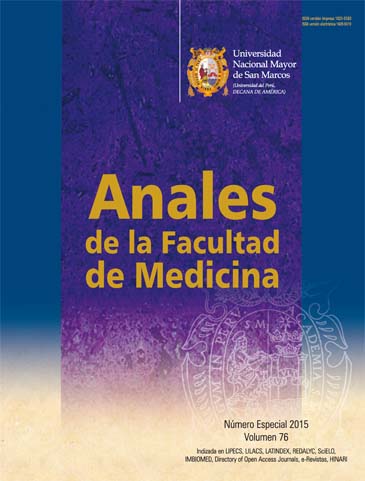Analysis of human resources management in family health, community and intercultural models in Andean countries
DOI:
https://doi.org/10.15381/anales.v76i0.10971Keywords:
Management, Human Resources for Health.Abstract
Introduction: While stressing the importance of health workers in sufficient quantity and quality, the member states of the Andean Health Organization - Hipólito Unanue Agreement (ORAS / CONHU) have launched initiatives aimed at generating and disseminating knowledge on policies, strategies and models of human resource management. Objective: To analyze the component of Human Resources for Health Management, identifying models used and their contribution to the set up of a health system based on primary care. Design: Qualitative study. Location: Ministries of Health of the Andean countries. Participants: Managers of Human Resources. Interventions: Design and implementation of a tool for qualitative analysis. Results: Countries have made progress in developing systems for managing human resources for health. They acknowledge that persistent problems include staff shortage and maldistribution, as well as professional graduate profiles not fully meeting population health needs derived from epidemiological change and a growing commitment to universal health coverage. Conclusions: Innovative strategies for planning, training and performance management could help to address the problems of human resources for health in a proper context of leadership and governance.Downloads
Published
2015-03-16
Issue
Section
Trabajos originales
License
Copyright (c) 2015 Verónica Bustos, Gloria Villarroel, Francisco Ariza, Michéle Guillou, Iván Palacios, Lily Cortez, Ricardo Cañizares, Manuel Núñez, Lizardo Huamán

This work is licensed under a Creative Commons Attribution-NonCommercial-ShareAlike 4.0 International License.
Those authors who have publications with this magazine accept the following terms:
- Authors will retain their copyrights and guarantee the journal the right of first publication of their work, which will be simultaneously subject to Creative Commons Attribution License that allows third parties to share the work as long as its author and its first publication this magazine are indicated.
- Authors may adopt other non-exclusive licensing agreements for the distribution of the version of the published work (eg, deposit it in an institutional electronic file or publish it in a monographic volume) provided that the initial publication in this magazine is indicated.
- Authors are allowed and recommended to disseminate their work over the Internet (eg: in institutional telematic archives or on their website) before and during the submission process, which It can produce interesting exchanges and increase quotes from the published work. (See El efecto del acceso abierto ).
How to Cite
1.
Bustos V, Villarroel G, Ariza F, Guillou M, Palacios I, Cortez L, et al. Analysis of human resources management in family health, community and intercultural models in Andean countries. An Fac med [Internet]. 2015 Mar. 16 [cited 2024 Jul. 17];76:49-55. Available from: https://revistasinvestigacion.unmsm.edu.pe/index.php/anales/article/view/10971















